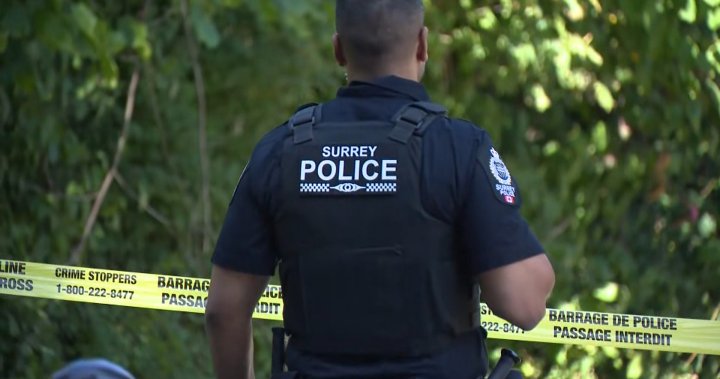Article – I opened this morning’s email to a flood of messages from business owners all bearing a familiar, troubling pattern. “It’s happening again,” read one from a restaurateur who’d received threats demanding $10,000. Another from a construction company owner contained screenshots of menacing text messages warning of “consequences” if payment wasn’t made.
The wave of extortion attempts targeting businesses in Surrey has reached critical mass, prompting the creation of a specialized police unit. The Surrey Extortion Police Response Team launched this week following months of escalating threats against business owners, primarily within South Asian communities.
“We’ve documented over 30 separate incidents since November,” explained Inspector Mandeep Atwal during yesterday’s press conference at RCMP headquarters. I watched as she laid out evidence boards showing the geographic spread of cases. “The threats follow a consistent pattern—demands for large cash payments accompanied by intimidation tactics including property damage and threats to family members.”
The targeting has caused ripple effects throughout Surrey’s business districts. Paramjit Singh, owner of three restaurants in the Newton area, described to me how the threats have transformed daily operations.
“I installed extra security cameras last month after my neighbor’s windows were smashed,” Singh said. “Now I’m closing earlier and my staff are afraid to work late shifts. This is affecting our livelihoods and sense of safety.”
Court documents I reviewed show that many victims received initial contact through WhatsApp messages from international numbers, primarily originating from India. These messages typically include specific personal details about the business owners or their families, suggesting surveillance occurred before contact.
The RCMP has confirmed what many community members suspected—the extortion attempts appear connected to organized crime networks with transnational links. Digital forensics experts with the RCMP’s Integrated Technological Crime Unit have traced several of the threats to individuals affiliated with criminal organizations operating between Canada and India.
“These aren’t isolated incidents,” said Sergeant Jamie Praught of the new response team. “We’re seeing coordinated efforts that cross jurisdictional boundaries, which is why we’ve partnered with INTERPOL and our counterparts in India.”
The specialized team brings together 10 officers with backgrounds in organized crime investigation, financial crimes, and cultural liaison work. Their approach emphasizes both preventative measures and active investigation.
Community organizations have stepped forward to support affected business owners. The Surrey Board of Trade has established an emergency hotline and created resource guides in Punjabi, Hindi, and English explaining steps business owners should take if targeted.
“The psychological impact cannot be understated,” noted Dr. Harpreet Gill, a psychologist working with victims through the Surrey Community Support Network. “Many business owners feel intense shame about being targeted and hesitate to report incidents, which perpetuates the cycle.”
During my interviews with five victims last week, each described similar patterns of escalation. Initial messages typically contain personal details meant to intimidate—children’s school locations, spouses’ routines, or photographs of the business owner’s home. If ignored, the threats escalate to property damage, including broken windows or vandalized vehicles.
“They sent me a photo of my daughter walking to school,” one business owner told me, requesting anonymity due to ongoing safety concerns. “How do you sleep after that? I paid them $5,000 before going to police.”
The RCMP acknowledges underreporting remains a significant challenge. Internal estimates suggest only about 40% of extortion attempts are reported to authorities.
The newly formed response team emphasizes confidential reporting channels and victim protection protocols. Their strategy includes coordinated surveillance operations at frequently targeted business districts and digital tracking of cryptocurrency payments, which have become the preferred method for extortionists.
Financial records obtained through court orders reveal how the criminal networks operate sophisticated money laundering operations to move extorted funds through cryptocurrency exchanges before converting them back to conventional currency in overseas accounts.
Legal experts note that prosecuting these cases presents unique challenges. “The international nature of these crimes creates jurisdictional hurdles,” explained Monika Sharma, a criminal defense attorney who has represented several extortion victims. “Even when we identify suspects operating from abroad, obtaining cooperation from foreign law enforcement can take months.”
Community leaders have praised the formation of the specialized unit while emphasizing the need for sustainable, long-term solutions. The World Sikh Organization of Canada has called for increased cultural competency training for law enforcement and greater investment in community-based prevention strategies.
“This isn’t just a policing issue,” said Balpreet Singh, legal counsel for the organization. “We need comprehensive approaches that address socioeconomic factors and provide meaningful support to vulnerable communities.”
The Surrey Extortion Police Response Team urges business owners who receive threats to preserve all evidence, avoid direct engagement with extortionists, and contact their dedicated hotline immediately. They’ve established a secure online portal for submitting evidence and anonymous tips through the Surrey RCMP website.
As I left the press conference, Inspector Atwal emphasized the message she wanted community members to hear: “You don’t have to face this alone. Report every incident. Your cooperation is essential to dismantling these criminal networks and restoring safety to our business community.”






